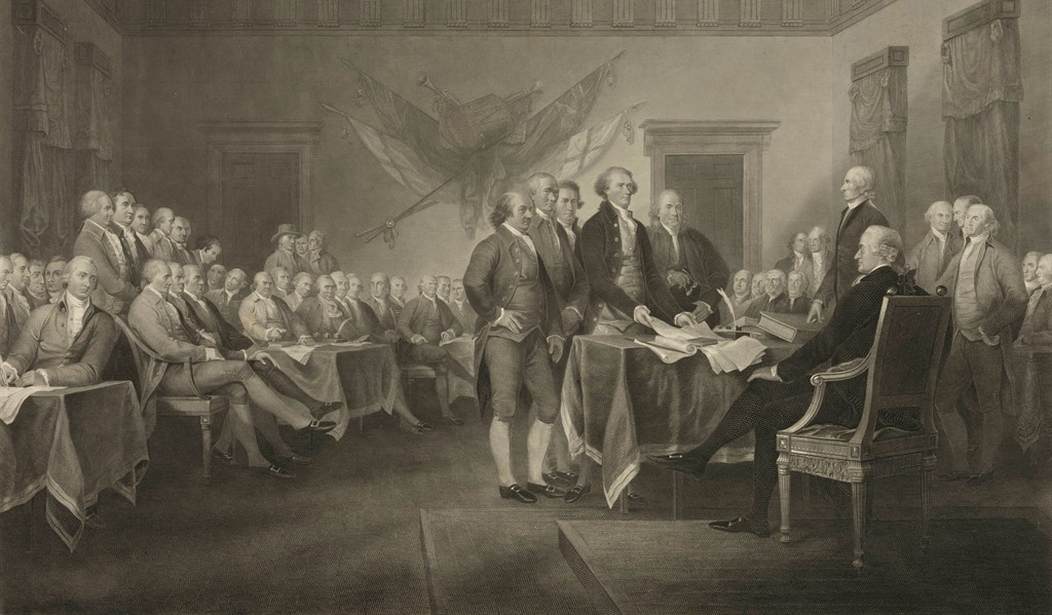The Founders were very particular about the charge of "treason."
Now, I'm going to say something controversial: the Founders were really smart. Really, really smart.
In something like this, where we have the literal words of the Founders to which we can refer, we probably should pay them careful attention. In Federalist Paper number 43, James Madison (writing under the name Publius) wrote:
[As] new-fangled and artificial treasons have been the great engines by which violent factions, the natural offspring of free government, have usually wreaked their alternate malignity on each other, the convention have, with great judgment, opposed a barrier to this peculiar danger, by inserting a constitutional definition of the crime, fixing the proof necessary for conviction of it, and restraining the Congress, even in punishing it, from extending the consequences of guilt beyond the person of its author.
The Founders had good reason to be sensitive about the charge of treason. Over and above the fact that had things turned out differently they would have ended up on a gibbet on London Bridge, they had the examples of people as various as Anne Boleyn, Sir Thomas More, and even King Charles I, put to death under British law for treason.
Coming back to current days, imagine Letitia James, the New York City prosecutor who ran on getting Donald Trump by hook or by crook and is now trying him for fraud with no victims, or Judge Arthur Engoron, who declared Trump guilty before the prosecution's opening statement. Would they go as far as charging Trump with "treason against the American People" or "treason against the State of New York" if there was a chance in hell to get away with it?
Then there's Jack Smith, who accumulated a lot of unanimous reversals of convictions of political opponents of the Democrats. You know that he'd already be getting fitted for his bespoke go-to-hangin' suit.
So the authors of the Constitution made a particular point of laying out strict Constitutional limits on what could be charged as treason. In Article III, section 3, the first clause says:
Treason against the United States, shall consist only in levying War against them, or in adhering to their Enemies, giving them Aid and Comfort. No Person shall be convicted of Treason unless on the Testimony of two Witnesses to the same overt Act, or on Confession in open Court.
Congress then wrote law to establish the elements of the crime and its punishment. In modern times, this is in 18 USC 2381, which reads:
Whoever, owing allegiance to the United States, levies war against them or adheres to their enemies, giving them aid and comfort within the United States or elsewhere, is guilty of treason and shall suffer death, or shall be imprisoned not less than five years and fined under this title but not less than $10,000; and shall be incapable of holding any office under the United States.
This whole Constitution thing was brand new, and the period after the adoption of the Constitution was … interesting, with Aaron Burr and the Whiskey Rebellion. By 1807, the Marshall Court had occasion to rule on the precise definition in ex Parte Bollmon. Marshall, writing for the Court, held that:
To constitute that specific crime [of treason] for which the prisoners now before the court have been committed, war must be actually levied against the United States. However flagitious [my new favorite word, meaning villainous] may be the crime of conspiring to subvert by force the government of our country, such conspiracy is not treason. To conspire to levy war, and actually to levy war, [are] the distinct offenses...
The first must be brought into operation by the assemblage of men for a purpose treasonable in itself or the fact of levying war cannot have been committed.
In other words, to constitute treason, there has to be actual adherence (mental attitude) to a foreign enemy (there must be actual hostilities), and war must be actually levied (as in, actual violence, not talk).
This makes it really hard to prove treason under U.S. law, and we have Madison's word that this was on purpose. In fact, the only person in recent years to have been indicted for treason was Adam Gadahn; the charge was mooted when he was killed in military operations against Daesh.
Considering who wasn't charged with treason is more informative. For example, the Rosenbergs were charged with espionage and not treason.
This really brings up what I call "the lesson of Robespierre." Robespierre was active from the start of the French Revolution in the late 18th century; he became a leader of the Committee on Public Safety, which executed thousands on the guillotine before the political wind changed and he himself went to the guillotine.
That's the lesson of Robespierre: what the mob can do for you is something the mob can do to you.
The Founders understood this. All too many people today do not.










